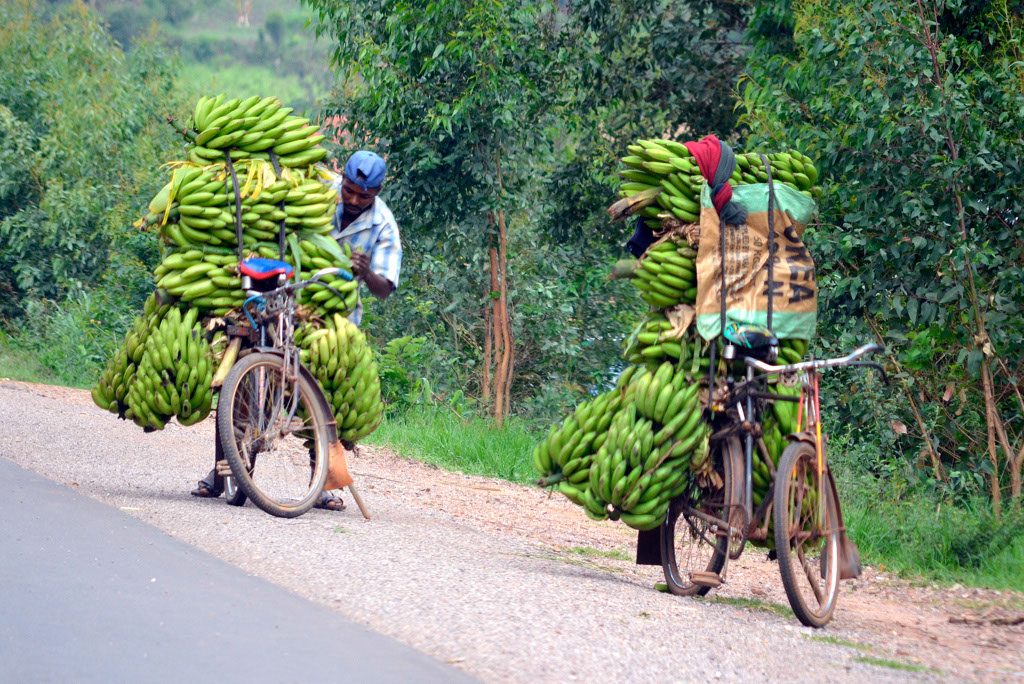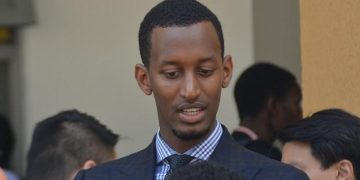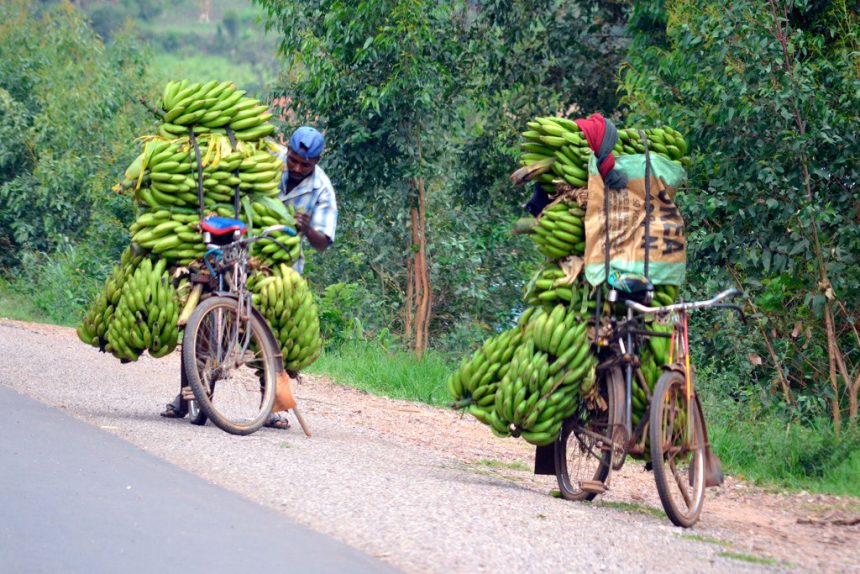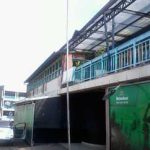Rwanda’s GDP is mainly agricultural-based; thus a major structural weakness in the economy, considering that it is underfunded and poorly developed.
Rwanda badly needs to get back on her feet after suffering a knockout by the unforgiving #COVID-19 pandemic that has pulled down every economy, globally.
One of the main first steps taken by Rwanda is the recent reconstitution of the board of directors at Rwanda Development Board (RDB).
The team of nine well-polished individuals has to steer Rwanda through 3-5 years of recovery by mobilising a solid investment strategy.
By elimination method; tourism, mining, investment attractions, and the signature MICE are less viable at the moment.
Under #COVID-19, the construction boom that has been lubricating Rwanda’s economy was hit hard.
And for more months or even 3 years to come, Rwanda will not see Clare Akamanzi of RDB flying abroad to entice investors to bring money to Rwanda. They are in hibernation like she told Taarifa a few weeks ago.
At the moment, agriculture offers quick hope that RDB could consider carefully to trigger an economic revival. From the farmer who buries the seed into the soil to the exporter or processor of produce. An entire value chain is a fantastic option, much as it isn’t the proverbial silver bullet.
The new RDB board needs to rethink Rwanda’s agriculture sector.
It should be moved from subsistence production to a more modern, one that is attuned to the needs of a more competitive market locally, regionally, and internationally.
For starters, Rwanda’s agricultural sector needs a massive financial and technical plan to change into a key driver of growth.
Current statistics indicate that the entire financial sector in Rwanda contributes less than 5% of the national GDP, with banking claiming 66%. Not that the whole service sector, where the financial sector belongs, grew by 8% in 2019 and contributed only 3.7% points to overall GDP growth. This is not an impressive result, but it is not as bad as agriculture.
Rwanda’s GDP is mainly agricultural-based; thus a major structural weakness in the economy, considering that it is underfunded and poorly developed. In 2019, the agriculture sector increased by 6% and contributed only 1.6% points to the overall GDP growth.
A careful audit on the new RDB board team indicates it is assuring to have a trailblazer like Dr. Dianne Karusisi, Bank of Kigali CEO. She is fully aware that Rwanda’s financial system is in terrible need of a total overhaul to realities of supporting a vast majority of Rwandans estimated at more than 80% of the total population whose main activity is agricultural production.
For the last two years, there has been talk of re-engineering the local commercial banking sector with a view of enabling it to play a pivotal role in the economy.
We all know that commercial bankers in Rwanda are very conservative and traditional in their approach to business and also when it comes to serving the needs of poor farmers in the country.
The time is right to re-engineer a radical change in the national financial system with a major objective of making millions of citizens to access financial and technical support in a more sustainable manner. Forgive the banks, that has not been their main worry.
A totally reformatted local financial sector is better placed to facilitate millions of citizens to escape from a vicious circle of subsistence production through real financial and technical inclusion. Textbook templates have not delivered pleasant results. it out there for everyone to see.
What comes to mind is that Rwanda’s only development finance institution; the Rwanda Development Bank (BRD) needs the most urgent and immediate attention. Newly appointed BRD CEO, Pichette Kampeta, is expected to be the biggest turnaround artist in the local banking sector.
But we all know that she cannot undertake this task alone. She needs a multi-stakeholder “dream team” to support her and that is how the new team at RDB comes in.
Along with the need to have a turnaround artist, BRD is in dire need of massive financing. As a pure development finance institution (DFI) BRD is at the moment a minor player in terms of financial muscle compared to the industry leader Bank of Kigali (BK).
BRD’s total assets are worth over US$200 million compared to BK’s whopping US$1 billion. However, BRD is expected to be way ahead of BK if at all Rwanda’s aspirations of lifting millions from poverty into real prosperity are to be met through meaningful and substantial financial inclusion.
In terms of re-engineering of BRD by the new team at RDB, this is something very possible to execute. Rwanda has a ready template in place with the story of BK’s turn around into a billion-dollar enterprise.
At RDB board level, the massive injection of financial resources into BRD by the government of Rwanda as its major shareholder and instituting a sustainable management system, may require two radical solutions.
One is political will at the very highest levels. The other is a sound management.

When one closely looks at the new team in addition to Dr. Karusisi, by stroke of luck or by design, RDB has Ivan Kagame as its member who has just returned from Wall Street, the world’s most complex financial district.
According to his profile posted on RDB website, the younger Kagame practiced equity financing at a very sophisticated and massive level in New York, muscling deals in the energy sector among other tasks.
 Ivan Kagame is also young and hence technically attuned to Rwanda’s huge ambitions in the ICT sector that has potential to link millions of poor farmers with BRD’s new forms of financial and technical resources once put in place.
Ivan Kagame is also young and hence technically attuned to Rwanda’s huge ambitions in the ICT sector that has potential to link millions of poor farmers with BRD’s new forms of financial and technical resources once put in place.
Being the First Son, Ivan Kagame is in full possession of unique qualities of political relevancy among others.
Therefore, he should offer his Wall Street business acumen, negotiations and other skills in his arsenal to make agriculture cool for the millions of unemployed Rwandan youth.
With financing sorted out, the next critical thing on the table is to make farming “a cool profession” throughout the country especially for the Rwandan youth.
Farming in Rwanda should be packaged and promoted by RDB in the same way RDB promotes Rwanda abroad as one of the best destinations for the global investing community.
“A million-hectare scheme” type of investment promotion should be developed quickly and vigorously promoted by RDB working closely with the ministry of agriculture ( MINAGRI) and other stakeholders.
We are talking about horticulture farming, poultry farming, bee farming, and many others. This also includes preprocessing and other opportunities that fill the whole value chain.
The development of the new farming scheme in Rwanda can readily be overseen by new appointees at RDB board of directors such as Eric Kacou, Liban Soleman Abdi and Dr. Solange Uwituze.
Eric Kacou is a veteran of Rwanda’s recent economic history while Liban Soleman Abdi brings in much-needed experiences from other African countries.
Dr. Solange Uwituze on the other hand is a daughter of the soil and is without doubt one of the top minds in the local agribusiness sector.
The retention of the Israeli as Chairman of the Board at RDB, Itzhak Fisher completes the possibility of having in place a youth-focused new farming scheme in Rwanda, considering the fact that he comes from a country that has one of the most advanced technologies and innovations in agriculture.
We all know that Israel is a global powerhouse in matters of agribusiness. Rwanda can, therefore, benefit tremendously from linkages that Fisher can bring to the new farming scheme if it is developed and operated by RDB. The new scheme could target high-value sectors in the local economy such as fisheries, horticulture, beef as well as poultry growing at both smallholder and mid-sized levels.
The new scheme could target high-value sectors in the local economy such as fisheries, horticulture, beef as well as poultry growing at both smallholder and mid-sized levels.
This is where the bulk of Rwanda’s population is currently eking out a living and is well known as an area that has previously received scanty attention.
The idea is to address entire value chains of these sectors from farm to the table of consumers locally, regionally, and internationally.
If Rwanda developed and sourced over US$1 billion into the local tourism sector over the last couple of years, the same template can be used to channel the same level of resources into the local agricultural sector.
The only difference is that the financial resources ought to come mostly from the Rwandan state and RDB should take leadership in that regard.
In terms of target markets and related linkages all ingredients of success are there.
Branded as “Made in Rwanda” organic and wellness products, Rwanda can easily sell the final products coming from the new youth-focused million-hectare farming scheme into the readily available regional markets of East and Central Africa.
Some of the critical missing links are connecting the target markets to the new farming scheme, something that the new team can address with minimal hustle.
In conclusion RDB’s new team does not have to look very far for credible solutions needed to lift Rwanda out of a looming recession. The agricultural sector offers a suitable route out for Rwanda.
No economy has gone wrong on anything that goes into the stomach. History tells us so.








